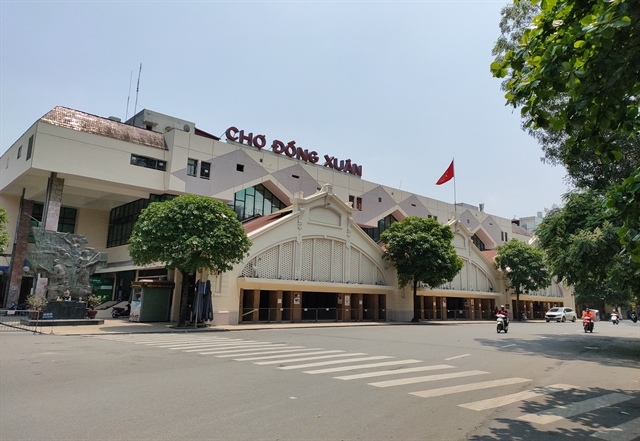 Society
Society

There are many countries in the world right about now that should be picking up the phone and giving Viêt Nam a call.

|
| Hà Nội streets fall empty as the country implements strict social distancing policy from April 1 to April 15. VNS Photo Đoàn Tùng |
*Paul Kennedy
There are many countries in the world right about now that should be picking up the phone and giving Viêt Nam a call.
If there was a definitive playbook written on how best to deal with COVID-19, there’s little doubt the author would be Vietnamese.
The work of the government, coupled with efforts made by the general public, have seen a minuscule amount of cases recorded to date, with more than half treated and discharged from hospital after making a full recovery.
The death rate remains at zero, and while there is no room for complacency, credit where credit is due needs to be given.
As an expat blessed to call Viêt Nam home these days, there’s not a day that goes by I don’t feel grateful to be living in a country that acted fast in the early days.
And as an expat blessed to call Viêt Nam home these days, there’s not a day that goes by I don’t feel grateful not to be living in the United Kingdom, where the number of infections and deaths skyrockets on a daily basis.
That said, I do look at another country where I once called home with a sense of pride of how well they are dealing with the pandemic and the similarities with the Vietnamese method.
The Cayman Islands are three tiny dots in the Caribbean Sea south of Cuba and west of Jamaica.
On paper, it has nothing in common with Viêt Nam. Separated by just over 16,000 kilometres, and with a time difference of exactly 12 hours, geographically speaking, they really are as opposite as can be.
The people, history, culture and landscapes of the two countries are also very different, and you’d be hard pressed to find a bowl of phở on sale in Grand Cayman as much as you would struggle to get your hands on a plate of Caymanian-style beef stew in the back streets of Hà Nội.
Cayman acted fast when the first case came to light. Flights were quickly cancelled and all new arrivals were quarantined for 14 days. Before too long, bars and restaurants closed and residents were told they couldn’t leave home except for essential reasons.
Sound familiar?
And to be fair to the powers that be here in Cayman, their quick and tough actions seems to be doing the trick, so far.
Their one and only death to date was a cruise ship passenger from Italy who was rushed ashore after becoming ill at sea.
They have miraculously acquired 250,000 testing kits costing US$4.4 million and they plan to make sure the 65,000 or so residents living there will soon find out if they have coronavirus.
Once the pandemic eases, it will take a while for the economy to get back on its feet.
Rather like Việt Nam, Cayman relies heavily on tourism and that could take a year, or even longer, to get back to normal.
So, while Cayman really is polar opposite to Việt Nam, the quick-thinking and fast actions of both governments are mirrored, and hopefully the two countries can win the war very soon.
But for that to happen, the public must play their part and follow the rules set by those in charge.
Cayman is tiny with a minuscule fraction of the 96,000,000 population Việt Nam has, and from my seven or so years spent living there, I know it is a country where it is difficult to go unnoticed.
Politicians in the Cayman Islands are more often than not friends, drinking buddies and in many cases, relatives.
Everybody knows everybody. And that can be a very powerful weapon in the fight against COVID-19.
Help your neighbour. Offer support to those who need it most.
And above all else, listen to the rules being set by those who know best, and follow them meticulously, despite what political reservations you may harbour.
It might just save your life.—VNS
*A similar story to this was first published in the Cayman Compass.